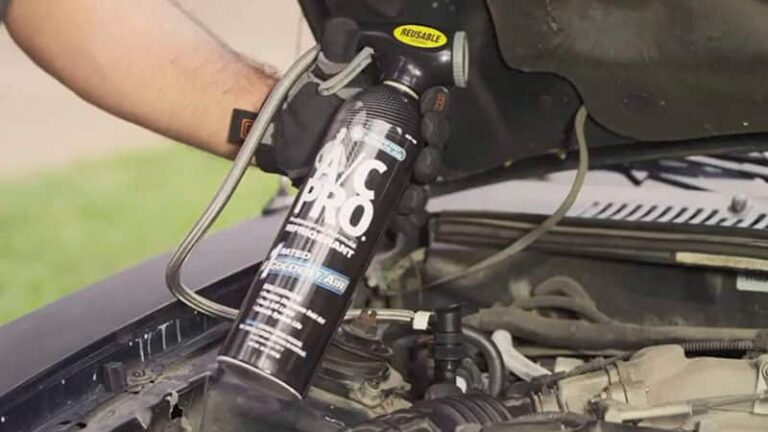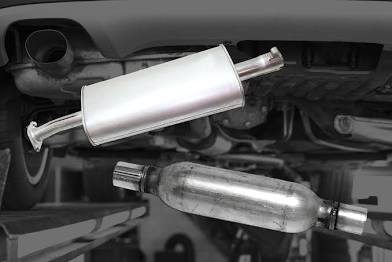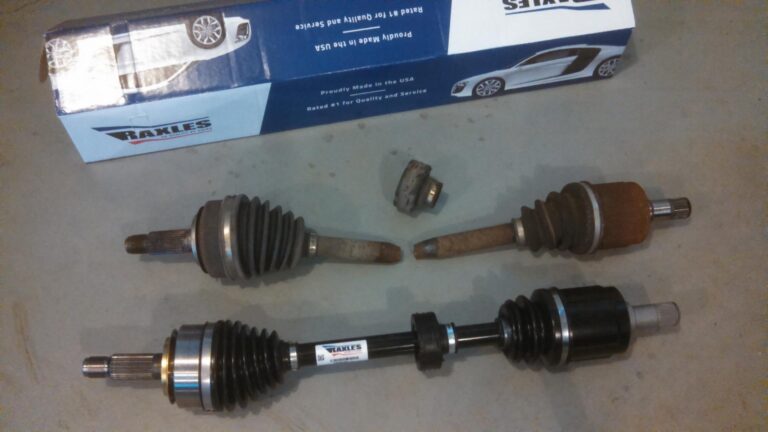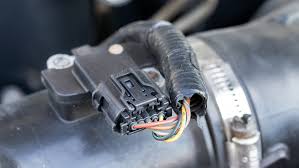Will New Brake Pads Make Noise?

When you install new brake pads in your car, it’s not uncommon to hear some noise initially. However, whether or not new brake pads make noise depends on a variety of factors, including the type of pads, the condition of your vehicle’s braking system, and how they are installed. In this article, we will address whether new brake pads should make noise, what types of noises to expect, and what might be causing any unwanted sounds.
Why Do New Brake Pads Sometimes Make Noise?
New brake pads are made from different materials, and some are more prone to noise than others. Additionally, when new pads are first installed, there are certain factors that might contribute to noises during the bedding-in or break-in process.
1. Bedding-In Process
- When you install new brake pads, they go through a “bedding-in” or “break-in” process. During this phase, the pads and rotors settle and wear in together. This process often involves slight friction between the new pads and rotors, which can produce squeaks or squeals. These sounds usually dissipate after a few hundred miles of driving as the materials adjust.
2. Brake Pad Material
- Organic Brake Pads: These are generally softer and may produce less noise but can wear out faster.
- Semi-Metallic Brake Pads: These are known to be more durable but can generate more noise due to their composition of metal shavings.
- Ceramic Brake Pads: These are known for being quieter, providing less dust, and offering long-lasting performance.
Different brake pad materials may interact differently with your vehicle’s rotors, which can contribute to noise during the initial use.
Types of Noise from New Brake Pads
While a certain amount of noise during the break-in period is normal, it’s important to identify the specific type of noise your brakes are making. Here are some common sounds that you might hear and what they could mean:
1. Squeaking or Squealing Noise
- What It Is: A high-pitched sound that typically occurs when the brake pads are in contact with the rotor.
- Possible Causes: New pads may produce squeaking during the bedding-in process as the friction material gets accustomed to the rotor surface. It can also be caused by moisture or brake dust accumulation.
- What to Do: If the squeaking persists after the bedding-in period, it could indicate an issue like worn-out pads, a need for rotor resurfacing, or a problem with the caliper.
2. Grinding Noise
- What It Is: A harsh, metal-on-metal sound.
- Possible Causes: If you hear grinding noise after installing new brake pads, it could indicate that the brake pads were installed incorrectly, there’s debris between the rotor and pad, or the rotors are too worn.
- What to Do: Grinding noises should be addressed immediately, as they can damage the rotors and compromise the effectiveness of your braking system. Inspect the brake pads, rotors, and hardware for proper installation and wear.
3. Thumping or Pulsing Noise
- What It Is: A rhythmic thumping sound that may also be accompanied by vibration in the brake pedal.
- Possible Causes: This could be a sign that the new brake pads are unevenly worn or there’s an issue with the rotor surface.
- What to Do: If this noise persists after the break-in period, you may need to inspect the pads for wear or check the rotors for warping.
When Should You Be Concerned About Brake Pad Noise?
While some noise from new brake pads is normal, there are situations where persistent or loud noises may require attention. Consider seeking professional help if you notice:
1. Constant Grinding or Metal-On-Metal Sound
- If the noise is persistent and doesn’t go away after a few days or weeks, it may indicate an issue with your brake pads, rotors, or the braking system in general.
2. Uneven Wear
- Uneven wear on brake pads can cause abnormal sounds, especially if the pads are not properly aligned or the rotors are not smooth.
3. Vibrations or Shaking During Braking
- If you feel vibrations or shaking while braking, this could be a sign of warped rotors or improperly installed brake pads.
How to Prevent or Minimize Brake Pad Noise
If you’re experiencing unwanted noise from your new brake pads, here are a few tips to minimize or prevent it:
1. Proper Bedding-In
- Follow the manufacturer’s recommendations for bedding-in your new brake pads. This usually involves driving at moderate speeds and applying light braking to help the pads conform to the rotor surface.
2. Regular Maintenance
- Regularly clean your brakes to remove dust and debris that can cause noise. Consider using a brake cleaner to ensure that all parts are free from dirt and grime.
3. Use High-Quality Brake Pads
- Opt for higher-quality brake pads, such as ceramic pads, which are known for their quiet operation and long lifespan.
4. Ensure Proper Installation
- Ensure that your brake pads are installed correctly and that the rotors are in good condition. Warped or damaged rotors can cause excessive noise and uneven pad wear.
Conclusion
New brake pads can make noise, especially during the initial break-in period. Squeaking or squealing noises are common and generally harmless, but grinding or thumping sounds could indicate a more serious issue that requires immediate attention. By ensuring proper installation, using high-quality parts, and following the correct bedding-in procedure, you can minimize unwanted brake pad noise and keep your braking system working smoothly.
Frequently Asked Questions (FAQs)
1. Should new brake pads always make noise?
- No, new brake pads should not always make noise. Some light squeaking during the bedding-in period is normal, but grinding or constant noise is not and may indicate an issue.
2. How long does it take for new brake pads to stop making noise?
- It usually takes a few hundred miles for the bedding-in process to complete and the noise to subside. If the noise persists, there may be another issue with the pads or rotors.
3. Can brake pad noise be fixed?
- Yes, depending on the cause of the noise, it can often be fixed by properly bedding in the pads, ensuring they are installed correctly, or replacing worn-out rotors or pads.
4. What causes new brake pads to make a grinding sound?
- Grinding sounds are usually caused by improperly installed pads, dirty or damaged rotors, or a lack of brake pad material left due to excessive wear.
5. Are ceramic brake pads quieter than semi-metallic pads?
- Yes, ceramic brake pads are generally quieter than semi-metallic brake pads, making them a popular choice for those who prefer a quieter driving experience.





